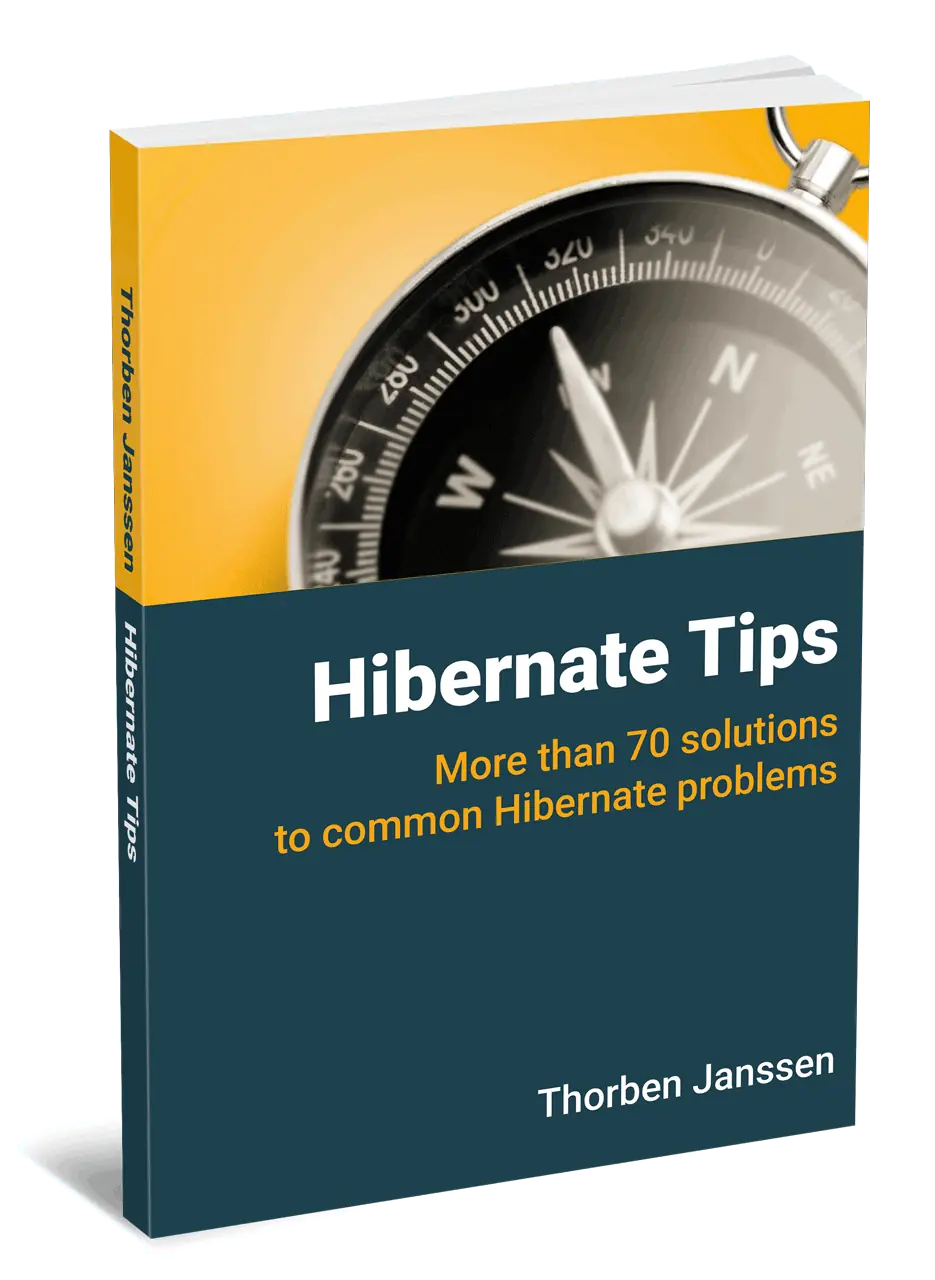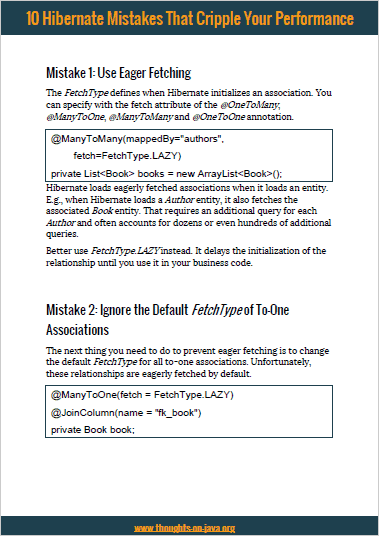Hibernate Tips: How to map an entity attribute to an Optional
Take your skills to the next level!
The Persistence Hub is the place to be for every Java developer. It gives you access to all my premium video courses, monthly Java Persistence News, monthly coding problems, and regular expert sessions.
Hibernate Tips is a series of posts in which I describe a quick and easy solution for common Hibernate questions. If you have a question for a future Hibernate Tip, please leave a comment below.
Question:
Some of my entity attributes are optional. Is there any way to map them to an Optional<T>?
Solution:
Since the release of Java 8, I get this question quite often. Unfortunately, Hibernate and JPA 2.2 don’t support Optional as an attribute type.
But with a little trick, you can still use Optional as the return type of your getter methods. If you annotate the primary key attribute with an @Id annotation, you tell Hibernate to use field access to set and retrieve the entity attribute values. That means that Hibernate doesn’t call the getter or setter methods and that you can implement them in any way you like. So, you can wrap the optional attribute into an Optional instead of returning it directly.
But please be aware, that this doesn’t include any lazy loading and just wraps the already selected value of the database column into an Optional. Hibernate requires bytecode enhancement to enable lazy loading for basic attributes. That’s far beyond the scope of this article but I explain it in more details in my Hibernate Performance Tuning Online Training.
Example
OK, let’s take a look at a simple example. A book might have been published, or the author is still working on it and will announce the publishing date soon. So, the publishingDate attribute of a Book entity can be null. The following code snippet shows the definition of the Book entity.
@Entity
public class Book {
@Id
@GeneratedValue(strategy = GenerationType.SEQUENCE)
@Column(name = "id", updatable = false, nullable = false)
private Long id;
@Column(nullable = true)
private LocalDate publishingDate;
...
public Optional getPublishingDate() {
return Optional.ofNullable(publishingDate);
}
public void setPublishingDate(LocalDate publishingDate) {
this.publishingDate = publishingDate;
}
}
I annotated the id attribute with @Id so that Hibernate uses field access. I also use a @GeneratedValue value annotation to tell Hibernate to use a sequence to generate the primary key value.
The publishingDate attribute is of type LocalDate. Since JPA 2.2 and Hibernate 5 support LocalDate as a basic type, there is no need to use the old java.util.Date anymore. And the getPublishingDate method wraps that attribute into an Optional.
Learn more:
You can use the same approach to map optional to-one associations to an Optional: Hibernate Tip: How to map an association to an Optional
And if you want to use more Java 8 features in your persistence layer, take a look at the following posts:
- JPA 2.2
- Hibernate 5
Hibernate Tips Book

Get more recipes like this one in my new book Hibernate Tips: More than 70 solutions to common Hibernate problems.
It gives you more than 70 ready-to-use recipes for topics like basic and advanced mappings, logging, Java 8 support, caching, and statically and dynamically defined queries.

